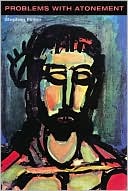

 |

|

The average rating for Problems with Atonement: The Origins of, and Controversy about, the Atonement Doctrine based on 2 reviews is 3.5 stars.
Review # 1 was written on 2012-04-30 00:00:00 Frans van Eil Frans van EilInteresting read just for the discussion of the distinctions between various Pauline images and metaphors such as sacrifice, scapegoat, legal contract, etc. I think some of the arguments against substitutionary atonement were incomplete but overall the book was an interesting and informative read. |
Review # 2 was written on 2019-11-04 00:00:00 James Adams James AdamsFinlan's text started very engagingly, but ended sour for me. I appreciated the way in which Finlan began by discussing the implicit challenges that come from discussing the atonement. Primary among them, is that Paul seems to be (in fact is) mixing his metaphors to get at his point: salvation comes from Jesus. His advice that we need to read Paul's metaphorical use of things like sacrifice, scape-goat, and heroic death the same way we read Jesus' parables is critical, helpful, and insightfully challenging. However, where I struggle with Finlan is his assertion that atonement is not a fundamental Christian belief--something he claims primarily by acknowledging that it is not unique to Christianity and can be found in numerous world religions. Finlan believes that the fundamental point of Christianity is the Incarnation (of which I agree) and that atonement was just a mythological, cultic, or societal metaphor to understand the God-Man. Rather than atonement being what God was "up to" in Jesus, God was primarily "up to" divinization, or capitulating the experience of humanity to Jesus. Unfortunately, he chooses to use the atonement theory of Irenaeus to then say that atonement is not what Christianity cares about. While I am in favor of a divinization/theosis/deification salvation theory, I do believe that atonement is part of that story. Finlan asserts, "Whether or not one wishes to utilize the terminology of theosis, which is still a strange and threatening concept to many Western Christians, there are many ways to return to the concept of the Incarnation without investing all of its significance in the death and turning the life into nothing but a lengthy prologue." (123) Unfortunately, Finlan never returns to discuss the importance of the death and makes the same error he is critiquing in reverse. In his paradigm, the death of Christ left as an appendix to the story. I wish he would have done a more faithful job of discussing how the death and resurrection were just as important to Athanasius and Irenaeus as was the life. Let us not favor one part of the trinity of Jesus over the others. |
CAN'T FIND WHAT YOU'RE LOOKING FOR? CLICK HERE!!!